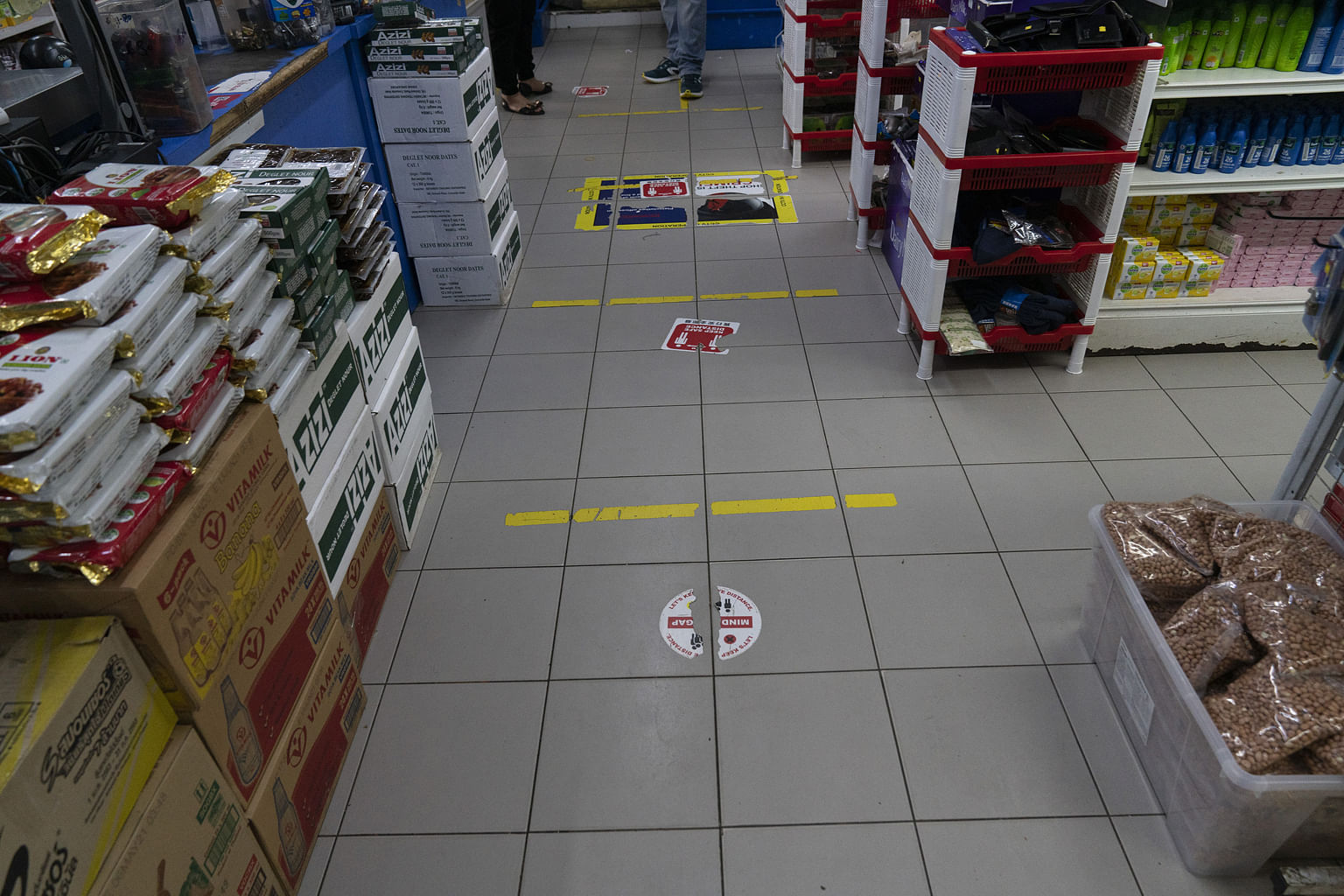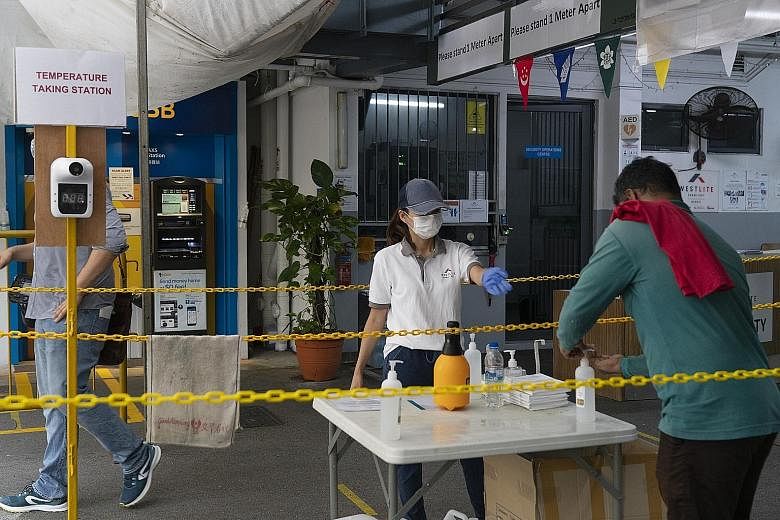Foreign worker dormitories have taken steps to limit residents from mixing with one another, but these are not foolproof, say dorm operators who point out that no number of rules will work if people do not adhere to them.
Since the dorms were declared clear of Covid-19 a month ago, on Aug 11, an average of 45 workers have tested positive for the disease daily, the Health Ministry disclosed on Wednesday.
They were detected primarily through active surveillance testing, such as rostered routine testing (RRT), and aggressive tracing and testing when a new case is detected.
The chief executive of dormitory operator Centurion, Mr Kong Chee Min, noted that it was possible now for workers to be infected elsewhere, away from their dorms, because many are spending part of their day outside following the resumption of work and the gradual relaxation of some restrictions.
He called for a coordinated effort with employers to enforce precautions at their worksites and urged workers "to understand and comply with the restrictions, even as we do our part to educate and encourage them in this area".
More than 16,000 workers currently occupy five Westlite dormitories run by Centurion. Two of the dorms reported new cases recently.
All five have implemented various measures such as technology-enabled doors programmed to open only for residents of specific blocks or floors, and restricting residents to their rooms except when going to work or for essential services.
On the new cases, Mr Kong said that the workers could have already been infected during initial tests, but they tested negative because they were still in the early incubation stage.
Second Minister for Manpower Tan See Leng also raised this possibility during a virtual press conference on Wednesday.

When asked if some of the dorm cases had slipped through the tests, Dr Tan responded: "At that particular point in time, in the cycle of the incubation, we may not have picked up the virus because the manifestation of it, the concentration, has still not reached that level yet."
In the light of this, the authorities moved to tighten procedures by rostering workers for testing every 14 days. Currently, some 90 per cent of workers have been scheduled for RRT.
Other measures have also been taken to discourage co-mingling in the dormitories.
Fences, gates and dedicated routes to common areas and exits are now the norm at many of the buildings. Communal facilities such as cooking areas and canteens have also been fenced up, segregating them for workers staying in different sections.
In addition, time slots are assigned for the use of amenities such as supermarkets, and security officers are on duty round the clock to enforce safe distancing measures.
Workers are grouped by worksites, and pickup and drop-off times for those heading to work are staggered to prevent crowding, said Dormitory Association of Singapore president Johnathan Cheah.
Mr Cheah, who is also managing director of S11 Dormitories, which manages a total of 19,000 bed spaces across three dorms, said the measures were designed to "reduce the inter-mixing of large groups". His firm has seen a total of 20 new cases since the all-clear was given.
At Hulett Dormitory, movement is also strictly controlled through facial recognition or card access, said its facilities manager Jack Ng.
Dedicated lifts serve the different floors, with each floor separated into various wings by a gantry system.
The dormitory has recorded two new Covid-19 cases since it was cleared.
Still, Mr Ng believes the measures remain adequate for now, but said workers "need to be educated on the importance of adhering to them".
"Otherwise, no amount of safe distancing measures will ever work," he said.
Dr Tan on Wednesday noted that the authorities had "successfully contained more than 200 re-emergent dormitory sites" so far. At most of these sites, the number of re-emergent infections has been low, with fewer than 10 each.
One dorm operator, who declined to be named, had concerns however about policing workers 24/7 and limiting their opportunities for social interaction.
"Some workers have already been isolated for many months," said the operator. "We do not want them to feel like they are trapped here."












